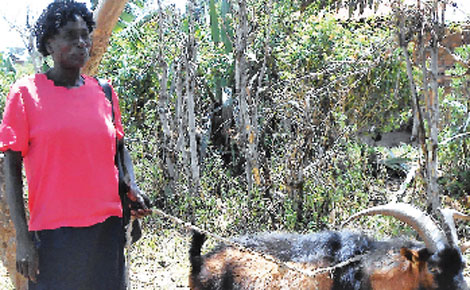×
The Standard e-Paper
Join Thousands Daily
 |
| Jemima Namuma and a dairy goat she rears at Munyuki village in Kakamega County. [PHOTOS: CHRISPEN SECHERE/ STANDARD] |
By JACKLINE INYANJI and ALEX WAKHISI
Kenya: As she lay on her presumed deathbed in September 2012, Jemima Namuma had nothing else to grasp on to reverse her deteriorating health.